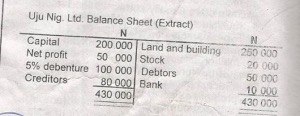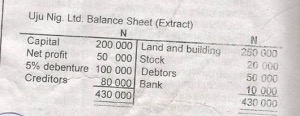
Accounting Questions and Answers
If you are preparing for an accounting aptitude test or even a job interview, these accounting questions and answers will help you master the principles of accounting. This test covers accounting past questions from WAEC, JAMB, Post UTME exams and many more.


